Improve Lives and Advance Rights
Objective
To advance measures that directly improve Israeli and Palestinian lives and livelihoods, with a focus on sustainable Palestinian economic and civic development.
Steps by the United States
Economic improvement is one of the most reliable and proven measures for promoting stability and defusing tensions between Israelis and Palestinians. Despite internal political dynamics on both sides that have closed off avenues for improved business and commercial cooperation, the American public and private sectors have vast capabilities to invest in the Palestinian economy, including sectors like telecommunications and commercial lending, which do not conflict with Israeli security concerns. The U.S. can also play a major role in leveraging the recent normalization agreements with Arab states and the broader donor community to increase resources available for joint Israeli-Palestinian economic initiatives, for which outside funding long ago disappeared.
Given its unique position, especially in promoting security cooperation, the U.S. can also play a greater role in opening up parts of the West Bank to encourage secure and sustainable trade, as was done with great success a decade ago in the northern town of Jenin—stabilizing one of the most violence-prone regions, and in a way that restored crucial contact between Arab citizens of Israeli and West Bank Palestinians.
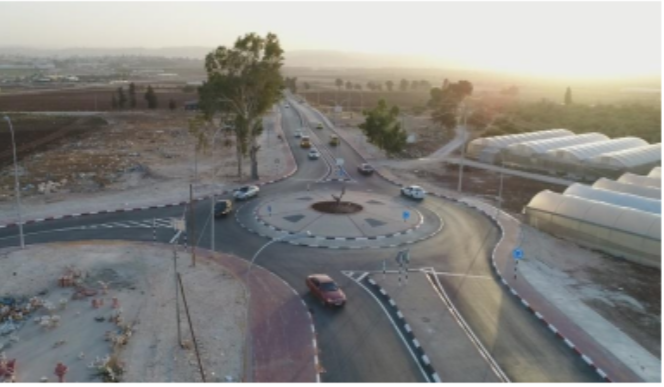
Jalameh Crossing in Jenin (USAID, 2002)
Building legitimate and functioning Palestinian institutions is a prerequisite to establishing a two-state reality. Though current U.S. law prevents investment in bilateral projects that directly benefit the Palestinian Authority until the issue of payments to perpetrators of terror is resolved, multilateral approaches such as through the Office of the Quartet Representative offer opportunities to enhance governance capacity while allowing the international community to play a meaningful role in further strengthening democratic institutions.
Initiatives promoting the rule of law, an independent judiciary, meritocracy in the civil service and transparent, effective management of natural resources like water are examples of essential benchmarks that can create a two-state reality and signal the viability of a new Palestinian state. In addition, it is essential that Palestinians establish credit worthy and independent financial institutions with appropriate governance and seek to satisfy the criteria to join the International Monetary Fund.
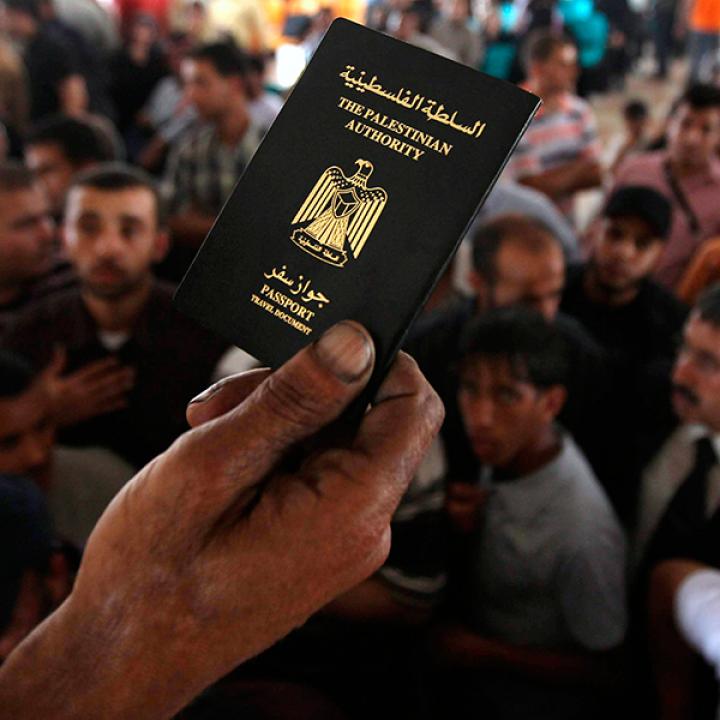
A Palestinian Authority passport (The Washington Institute for Near East Policy)
Since the early 1990s, the United States has been the largest single provider of development assistance to Palestinians living in the West Bank and Gaza Strip—both through multilateral institutions like the U.N., and in terms of direct assistance. Initially geared toward implementation of Israeli-Palestinian peace agreements, including the establishment of credible, effective Palestinian public institutions to replace functions previously handled by Israeli authorities, U.S. assistance has adapted since the early 2000s to focus on bolstering the Palestinian Authority and ensuring the empowerment of moderate leaders who foreswear violence and uphold past agreements with Israel.
The Trump administration shut down U.S. assistance programs and pared down USAID’s West Bank and Gaza mission, which had been managing a large portfolio of water, education, infrastructure, and good governance programs—all of which were heavily vetted, supported by Israel, and consistently endorsed by bipartisan majorities in Congress. In addition, USAID had managed a modest, but vital set of programs that promote Israeli-Palestinian people-to-people building initiatives—non-political efforts that largely focus on youth and provide rare opportunities to build and sustain positive relationships between Israelis and Palestinians. USAID also managed the U.S. government’s modest East Jerusalem grantmaking portfolio, which focused heavily on Palestinian public health.
Rebuilding the USAID mission would promote American leadership, advance COVID-19 diplomatic initiatives and provide incentives for Palestinian leaders to adhere to previous agreements and engage in a renewed political process with Israel.
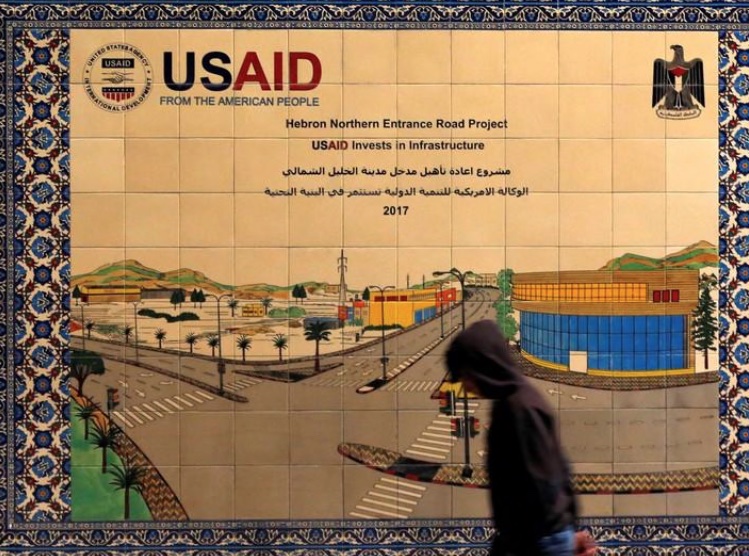
USAID-Palestinian Authority project in Hebron (Mussa Qawasma/Reuters, 2019)
UNRWA plays a vital role in Palestinian society. It delivers humanitarian assistance and essential human services like education and public health to the most vulnerable segments of the Palestinian population in Gaza, the West Bank and in neighboring countries, including Lebanon, Syria, Jordan and Egypt. UNRWA’s school, education and youth programs are the largest provider of secular, quality education in the Levant, providing a moderating and stabilizing role in a region suffering massive social tumult. By restoring funding, the U.S. would be in the driver’s seat to set a reform agenda that ensures oversight, delivers vital services to needy Palestinians, and reasserts U.S. leadership.
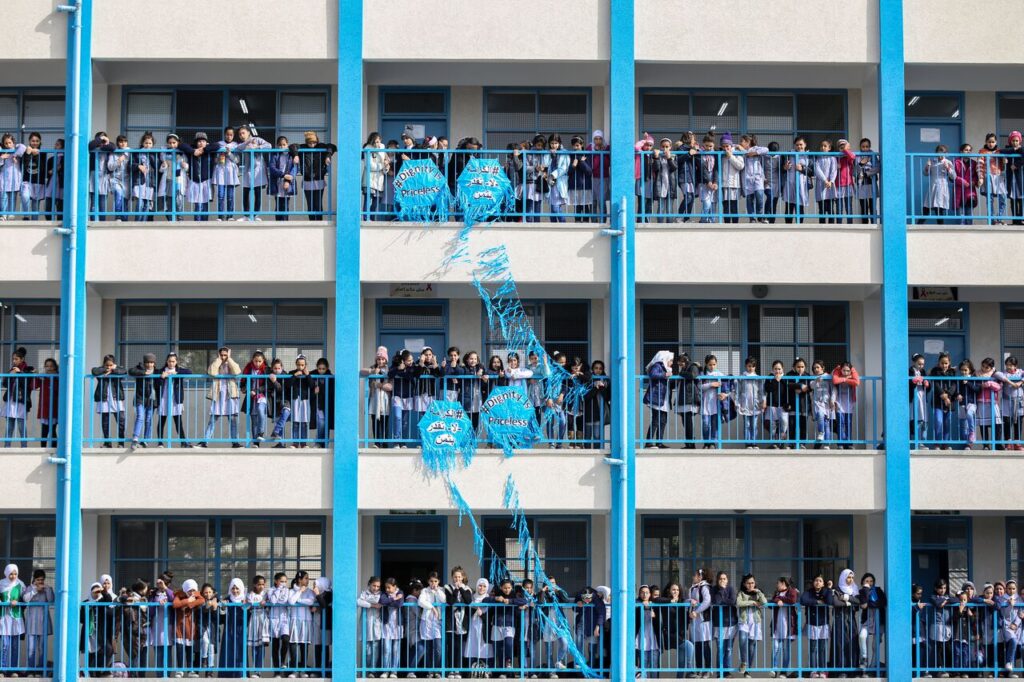
An UNRWA school in Gaza (Rushdi Al-Saraj, 2018)
Led by Chairwoman Representative Nita Lowey, Representative Jeff Fortenberry and Senators Chris Coons, Lindsey Graham, Tim Kaine and Cory Gardner, this widely supported bipartisan law was signed into law by President Trump as part of the Omnibus spending bill at the end of 2020. The legislation establishes a $250 million fund designed to build bottom-up civil society and economic partnerships between Israelis, Palestinians and international partners and reinvigorate people-to-people peacebuilding opportunities. Inspired by the International Fund for Ireland, the fund leverages five years of U.S. funding to add international commitments that promote initiatives to increase public support for political progress. Another complementary objective is to catapult private sector growth in the West Bank and Gaza by creating commercial partnerships with the Israeli Start-Up economy.1 See Lowey Fund; See also Annex “Should the United States Create a West Bank/Gaza Enterprise Fund (WGEF)?” CSIS July 2020 report – https://www.csis.org/analysis/should-united-states-create-west-bankgaza-enterprise-fund-wgef
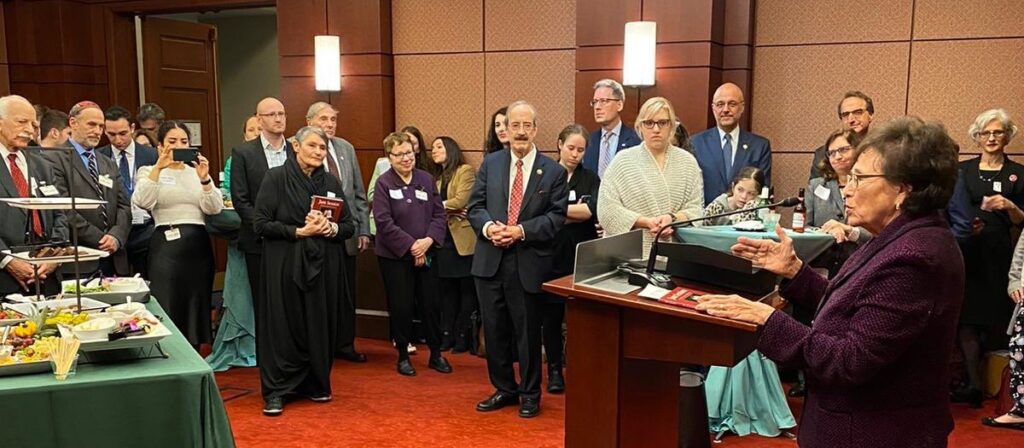
Members of the peacebuilding community and Congress celebrate Chairwoman Nita Lowey efforts to promote people-to-people peace building opportunities (ALLMEP’s Facebook, 2020)
Steps by the Palestinian Authority
Since President Bush established the office of the U.S. Security Coordinator more than 15 years ago, the U.S. has played a significant role developing Palestinian security capacities and facilitating contacts between security forces. Despite the breakdown in relations and the horrific violence of the Second Intifada, Israeli leaders were dead-set against the IDF taking over full responsibility for security affairs, especially in the most densely populated Palestinian cities and towns. With American-led training programs, combined with back-channel dialogue led by a three-star American flag officer, basic coordination was restored and has been maintained even through tense periods, although the threat of annexation and Palestinian financial stress have severely curtailed both security and civilian coordination in recent months.
But the scope of these efforts remain limited, particularly in the realm of intelligence sharing and the rule of law and justice sectors. There is also limited involvement of reliable neighbors like Jordan, an area that could also be expanded, with Jordan and perhaps with other top-flight security partners, like UAE. Security remains the sine-qua-non for Israel, and Israeli leaders need to know that giving Palestinians more control over their day-to-day affairs will not come at the expense of Israeli security. Enhanced security coordination can lead to fewer Israeli security incursions in the West Bank in areas under Palestinian security responsibility (Area A) and improved synergy can enable greater access for Palestinian police in Palestinian communities in areas under Palestinian civil control (Area B). Competent Palestinian policing in these areas would reduce Palestinian criminality in Israeli controlled areas. Thus, both Israelis and Palestinians have a mutual interest in augmenting the capacity of Palestinian security forces and enhanced coordination.
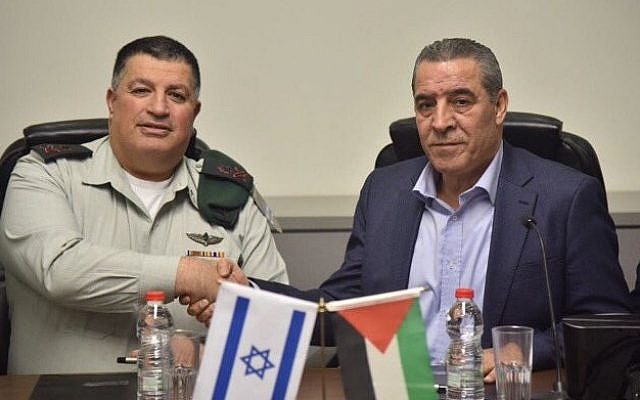
Then-coordinator of government activities in the territories (COGAT) Maj. Gen. Yoav Mordechai, left, meets with the Palestinian Authority’s Civil Affairs Minister Hussein al-Sheikh (COGAT, 2017)
Separate from the traditional basket of “final status” issues (i.e. borders, Jerusalem, security, etc.) there is a vast realm of cooperation that Palestinians could undertake with Israelis in the areas of economic development, health and the environment. In some areas, like water and electricity, the sides have managed to maintain cooperation. But more often than not, joint efforts on day-to-day matters are held hostage to the overall political climate.
Rather than deny Israelis and Palestinians the practical benefits of sector-specific cooperation, and considering the particular hardships created by the ongoing pandemic, Palestinian leaders should consider a new approach. By engaging more regularly with Israelis on issues with well-defined and clear “quality of life” benefits, not only would average Palestinians benefit, but it would also go a long way toward restoring trust and faith in peacemaking.
Palestinians should also be able to tap into a reservoir of support from international donors, particularly the UAE and other Gulf States as normalization efforts advance with Israel. Consistent with the commitments made by the international community at the Bahrain Conference in June, 2019, the U.S. can organize strategic infrastructure investments that will stimulate growth in the Palestinian private sector. Commercial enterprises, hospitals, schools, public agencies and homes could attain dependable supplies of digital services, electricity and clean water. These investments in essential infrastructure should be closely coordinated with renewed U.S. engagement with Palestinian leaders in order to build public support for increased Palestinian engagement on economic projects as well as the political track.
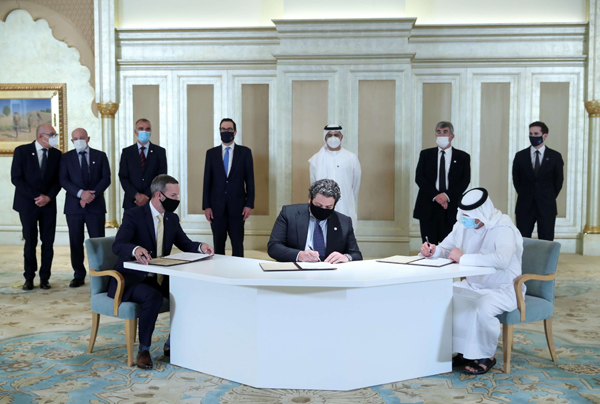
The signing of the Abraham Accords between the UAE and Israel (WAM/AFP, 2020)
Although on the whole Palestinian public institutions have avoided incitement and generally recognize Israel, there are still too many instances of official Palestinian bodies tolerating or even proffering rhetoric or content that dehumanizes Israelis or the Jewish people. Avoiding incitement is as much a priority for maintaining faith and trust with Israelis, as it is for ensuring that the Palestinian public is conditioned over time to relate to Israelis as neighbors and in good faith as legitimate negotiating partners.
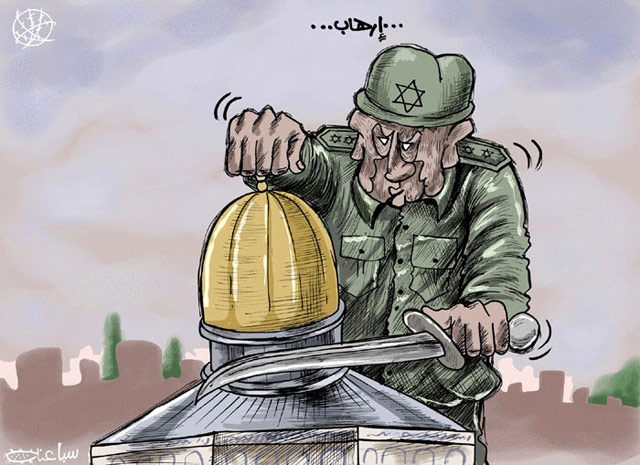
Cartoon published in the PA official daily, Al-Hayat Al-Jadida (Israel Ministry of Foreign Affairs)
No less important than addressing denialism or incitement is the lingering need to ensure that official Palestinian organs—including public schools—utilize accurate maps that acknowledge Israel’s existence. International donors can play a vital role, whether it be advising, subsidizing or monitoring, but the impetus needs to come from Palestinian leaders. Recognizing Israel cannot be limited to the diplomatic realm and official pronouncements, it must extend to civil society and public education.
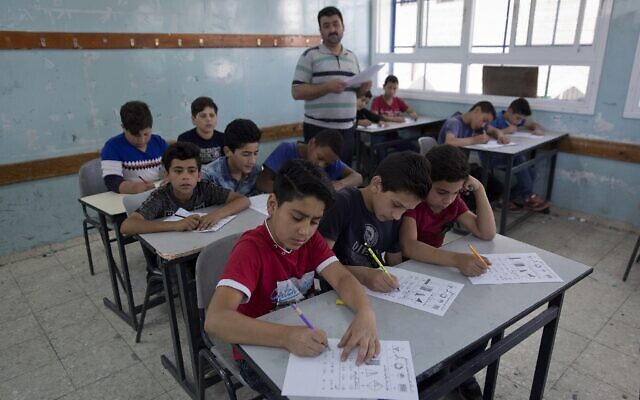
A Palestinian school in Hebron, 2019 (Nasser Nasser/AP, 2019)
The PA must vocally condemn any and all attacks on Israeli civilians and synagogues including through public condemnations by the Council of Religious Institutions of the Holy Land and other religious authorities.
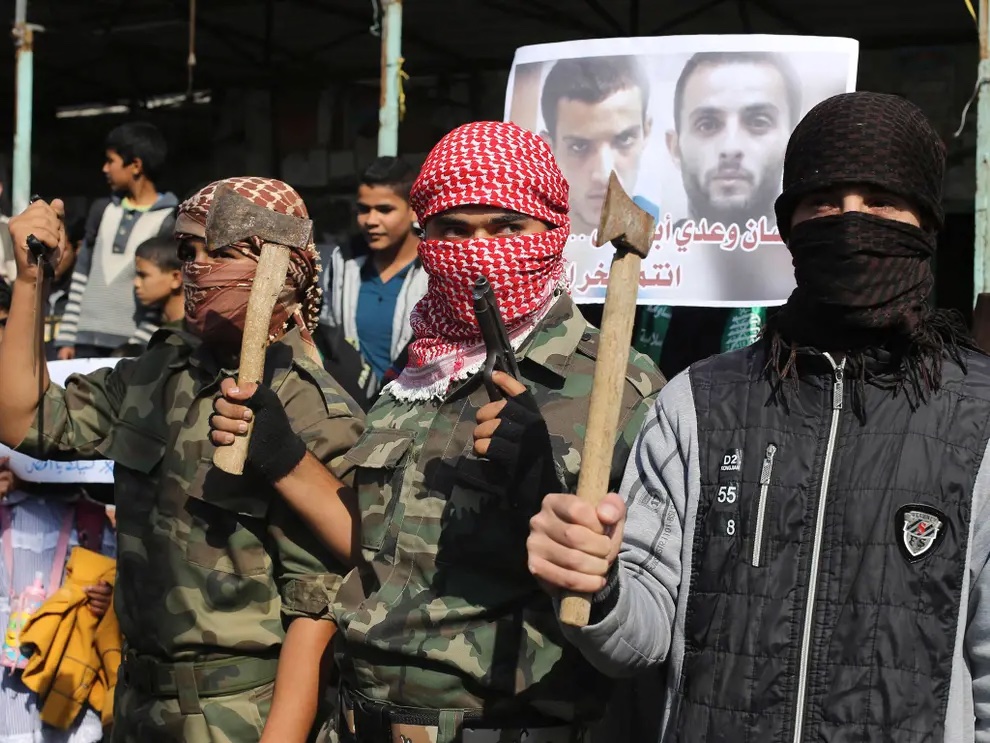
Masked Palestinians in Gaza Strip hold axes and a gun as they celebrate with others an attack on a Jerusalem synagogue (The Independent, 2017)
Although most Jewish religious sites are controlled by Israel, some, like Joseph’s Tomb in Nablus and the Jericho synagogue, are not and numerous Palestinian assailants have attacked Jewish worshippers as they enter and exit the Patriarchs’ Tomb in Hebron. All too often in recent years, Palestinian leaders have not been seen as fully committed to ensuring freedom of worship and safe access by Jews to Jewish sites.
By upholding the prayer rights of Jews and facilitating more frequent visits to Jewish holy sites, Palestinians would also be sending a positive signal about future relations under a “two state” formula and encouraging religious leaders on both sides to work together and develop trusting relationships in a religious dynamic.
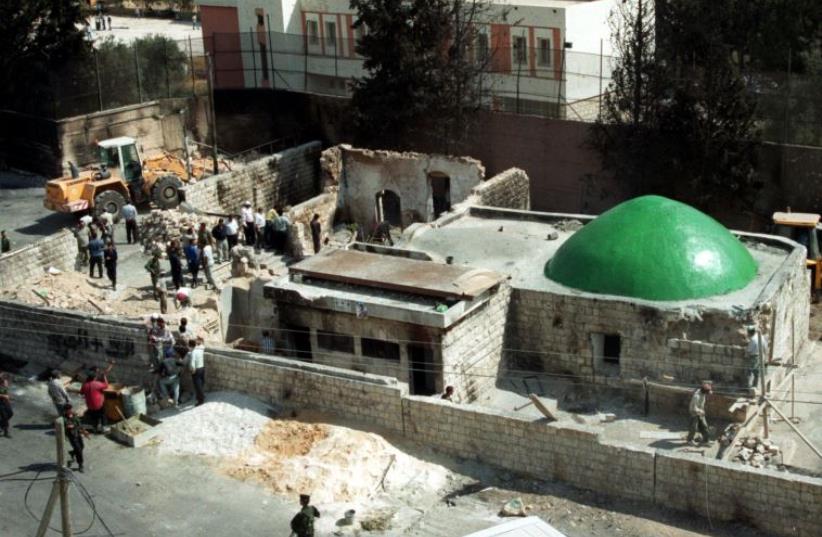
Tomb of Josef in Nablus (Reuters, 2015)
Steps by Israel
The security barrier, built by Israel in response to the Second Intifada, cuts into Jerusalem’s municipal boundary, effectively cutting off two large Palestinian neighborhoods (Shuafat Refugee Camp and Kafr Aqab) containing about 90,000 residents (30 percent of Jerusalem’s Palestinian population). These areas are within the municipal boundary of Jerusalem, as defined by Israel after the 1967 War, but are now beyond the security barrier.
The resulting situation is that city services no longer reach these areas, whether it be police, fire or sanitation, yet the Palestinian Authority is unable to provide services since the areas are outside its jurisdiction. Seemingly with no end in sight, these areas have effectively become a no-man’s land with crumbling infrastructure, drastic disruptions in basic services, and little security. Since Israel does not exercise responsibility for these neighborhoods in any meaningful manner, they should be rezoned out of the Jerusalem municipality and into the Palestinian Authority as a way of reducing crime and improving living conditions for the Palestinian residents.
Since Israel would be ceding municipal control of these neighborhoods, it reasonably follows that building permits and other civil undertakings should be transferred as well. For instance, easing restrictions Israel imposes on East Jerusalem Palestinians (inside and outside of the security barrier) who marry West Bankers to allow family reunification would have a meaningful impact on many Palestinian families.
Properly choreographed, these moves would empower the PA and moderate Palestinian leaders and restore trust in peacemaking.
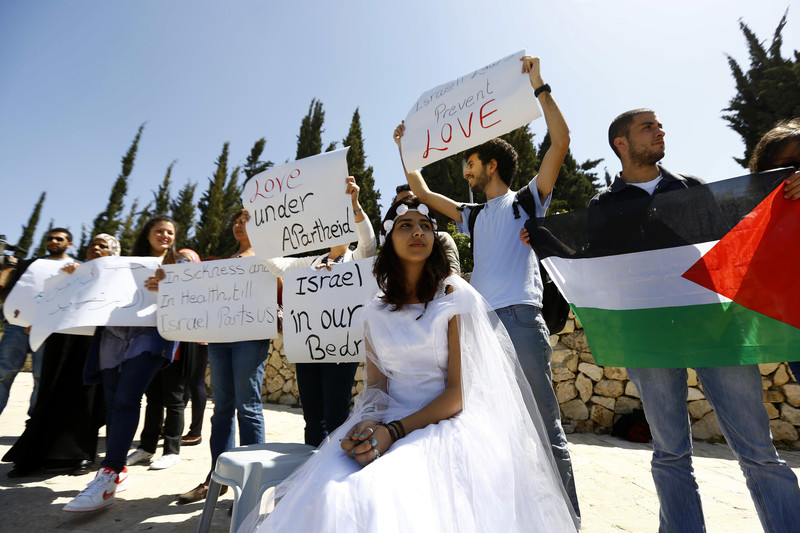
Palestinians protest Israeli family unification policies near Prime Minister Netanyahu’s residence in Jerusalem (Sliman Khader/APA Images, 2013)
Some 120,000 Palestinians now work in Israel, bringing significant remittances into the Palestinian Territories. Israeli authorities maintain a sophisticated and reliable system for managing this work force, partly aided by the security barrier, which has substantially reduced the number of illegal workers. Palestinian labor is estimated to generate support for no less than 600,000 Palestinians. There is a large pay differential between work in the Palestinian Territories and Israel; for the same job, pay in Israel can be twice as much.
In recent years, senior IDF officials have concluded that the number of permits to work in Israel for Palestinians in the West Bank and Gaza can be dramatically increased. The obstacles are almost entirely political. Aside from improving the economy and lessening Palestinian dependence on outside aid, expanding work opportunities bolsters Israeli security by raising living standards and reducing incentives for violence. Allowing more Palestinians to work in Israel would also help restore the trust required to sustain any future agreements.
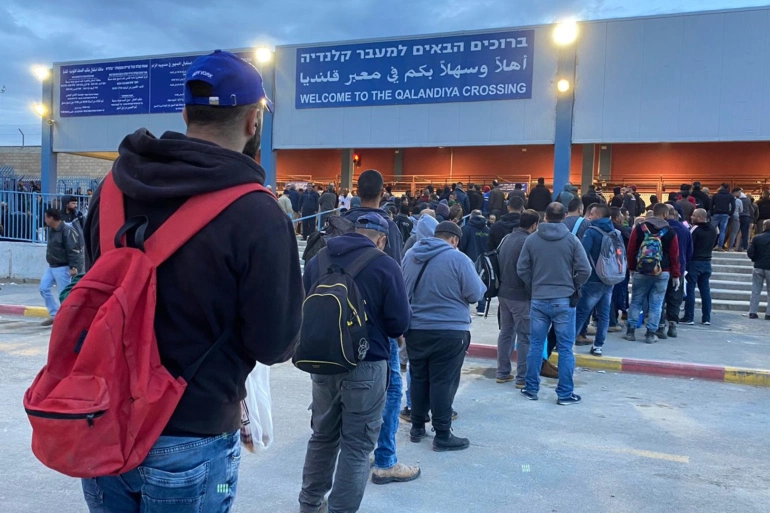
Palestinian workers queue at the Qalandia checkpoint near Ramallah to cross into Israel (Alex Lederman/Al Jazeera, 2020)
As outlined in the Trump administration’s “Peace to Prosperity” Plan, Israel can cooperate with the Palestinian Authority and Jordan to facilitate Muslim and Christian tourism to Jerusalem and its holy sites as well as sites in the Palestinian Territories. Licenses can be offered to Palestinian and Jordanian tour guides and a joint tourism board can be established to promote regional tourism.
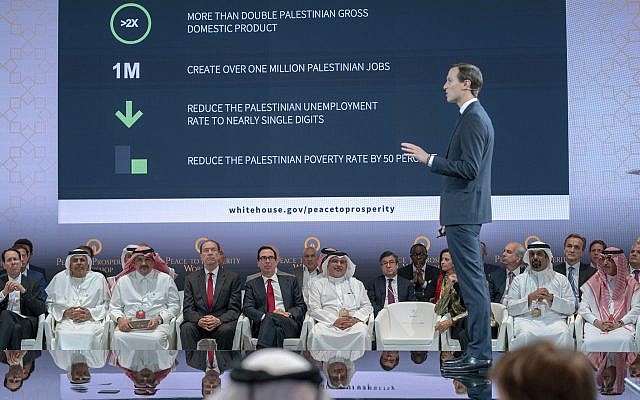
Former White House adviser Jared Kushner, standing, during the opening session of the “Peace to Prosperity” workshop in Manama, Bahrain (Bahrain News Agency/AP, 2019)
The establishment of the Nationalistic Crime Unit within the Israel Police in 2013 has not produced long-term improvement in the quality and outcomes of police investigations. A remarkably low percentage (only 4%) of all files investigated between 2017 and 2019 resulted in indictments.2 https://s3-eu-west-1.amazonaws.com/files.yesh-din.org/דצמבר+2019+דף+נתונים+חוק/אנגלית/Law+Enforcement+Data+Sheet+12.2019+ENG.pdf Israel can systematically condemn settler vigilantism and violence, including through public condemnations by Israel’s Chief Rabbinate and other religious authorities—especially those tied to settlements. Moreover, Israel can enhance the capacity of Israeli law enforcement authorities to arrest and bring to justice those suspected of acts of vandalism and violence. Israel should also implement a de-radicalization program towards the “hilltop youth”.
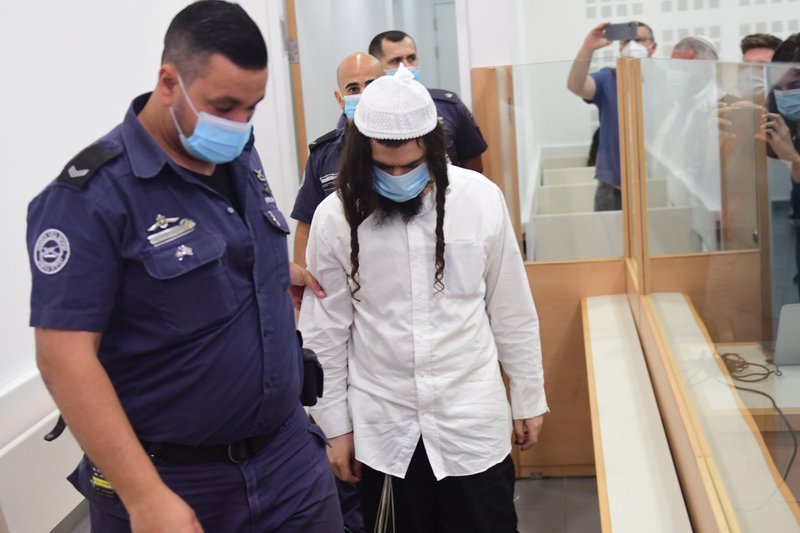
Israeli extremist convicted on three counts of murder over the murderous attack that killed three members of the Dawabsha family (18-month-old Ali Dawabsha and his parents) (Avshalom Sassoni/AP, 2020)
Technology has been deployed to dramatically improve wait times to enter Jerusalem for Palestinian workers and goods that enter the city. This technology, already in use at the Qalandiya checkpoint north of the city, can be expanded to other crossings to reduce wait times and allow for the freer movement of people and goods-one of the leading factors dragging down the Palestinian economy. Israel can also train and situate Palestinian customs officials at specially designated facilities at the Ashdod and Haifa ports which would begin to professionalize Palestinian capacity to regulate international commerce and collect cargo taxes. These measures are possible without compromising Israeli security.
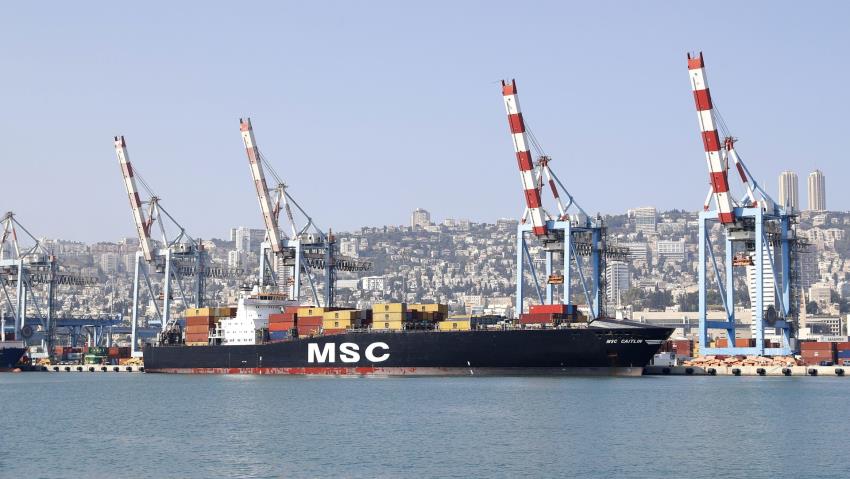
Haifa Port (AFP,2020)
Palestinians continue to face severe restrictions on their access to the world, yet these could be eased in significant ways. First, Israel could reduce wait times at the Allenby Bridge/Al-Karameh Bridge/King Hussein Bridge crossing to Jordan by introducing advanced technology and expanded hours to expedite and ease passages. Second, Israel could train and situate Palestinian customs officials at the crossing to Jordan and minimize the visibility of Israeli officials which would have immediate and substantial practical and symbolic benefits. Third, as outlined in the Trump administration’s “Peace to Prosperity” Plan, access roads can be built for Palestinians to cross the Jordan Valley to ease travel to and from Jordan, subject to Israeli security requirements. Fourth, Israel could restore the possibility for Palestinians to fly abroad through Ben Gurion Airport through the use of direct, secured shuttles. Palestinians may be able to benefit from the recent UAE-Israel normalization agreement by developing special arrangements with UAE based airlines to facilitate international travel.
Increasing the number of student visas would also give Palestinians greater access to the world and allow students to return to the Palestinian Territories with the skills needed to boost the economy and improve local conditions.
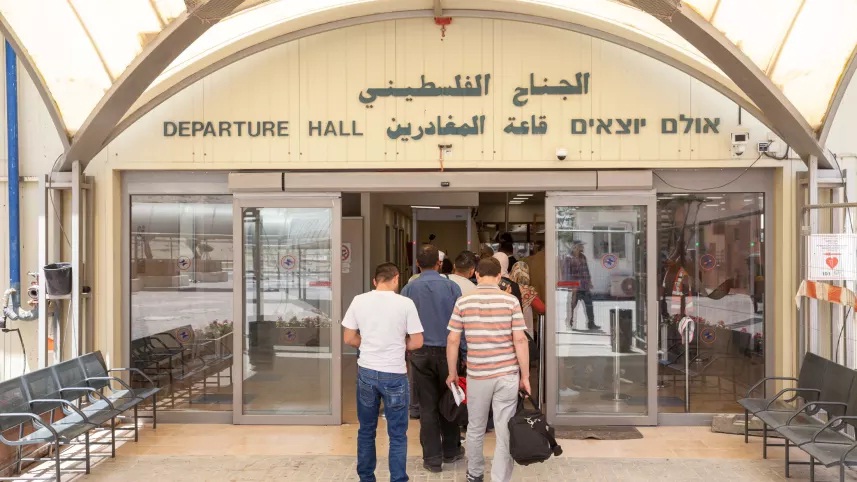
The Departure Hall at the Allenby Bridge Crossing between the West Bank and Jordan (The Palestinian Information Center, 2019)
The concern about maps and delegitimization cuts in both directions. Accurate maps acknowledging the Palestinian Territories are increasingly rare in Israel. This lack of recognition has the effect of negating the existence of Palestinians and their claims. Accurate maps would provide legitimacy to Palestinians in the eyes of the Israeli public. They would also give a clearer, more realistic depiction of the potential trade-offs involved in a negotiated resolution of the conflict. Moreover, accurate maps would strengthen the demand that Palestinians reciprocate.
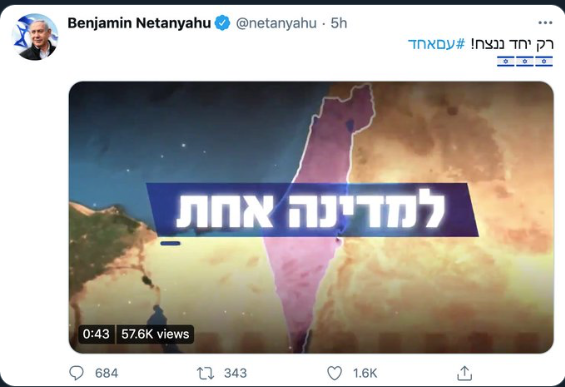
Israeli Prime Minister Benjamin Netanyahu showing a map of Israel on his Twitter without including the West Bank and Gaza Strip in a political campaign
Multinational Support
Build foundation for a thriving Palestinian economy
As outlined in the Trump administration’s “Peace to Prosperity” Plan, an ambitious economic plan for the Palestinians should be started early on in parallel with efforts to improve conditions and narrow the conflict to avoid normalizing the status quo. After a sufficient number of initial steps have been taken by the parties, the United States can organize a major investment conference along with the Palestinian Authority and our transatlantic allies to generate economic growth and job creation.
The Peace to Prosperity Plan identifies several worthwhile initiatives and sectors to stimulate investment and innovation opportunities for Palestinians including:
- startup equity-matching and lending facilities;
- human capital through technical and vocational education;
- entrepreneurship through incubator ecosystems;
- digital services and development of 4G LTE and 5G technologies;
- tourism lending and site rehabilitation;
- agriculture financing;
- housing construction; and
- natural resource development